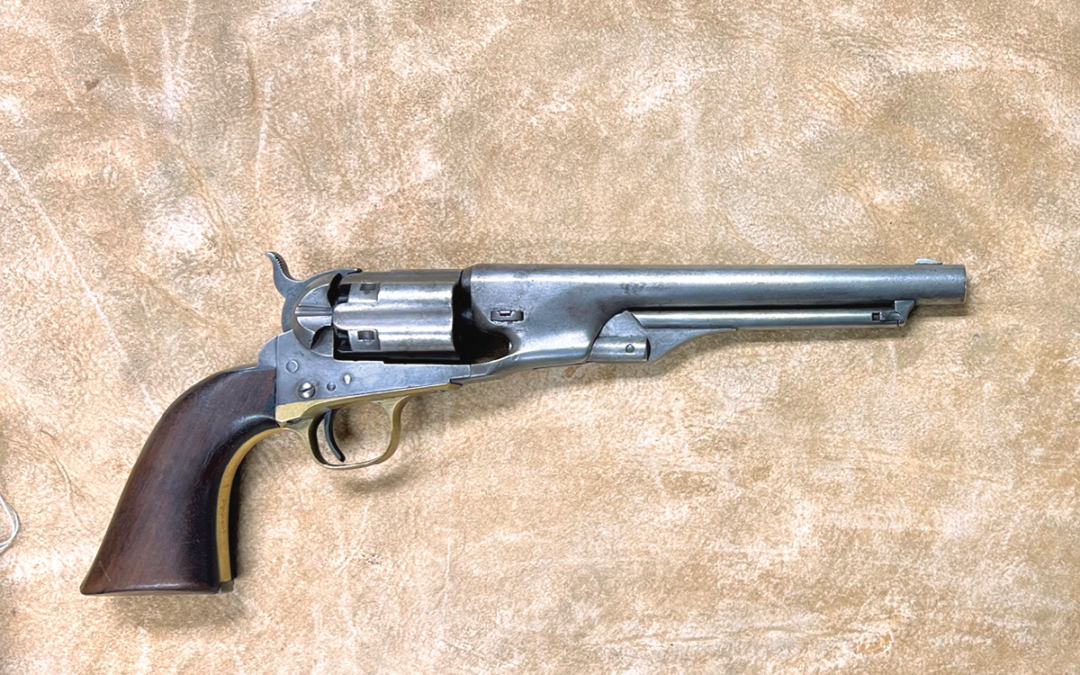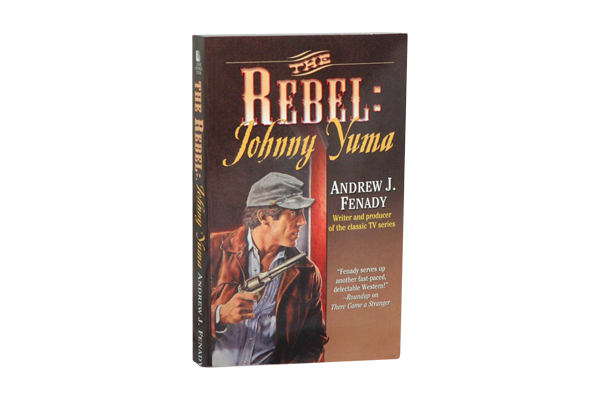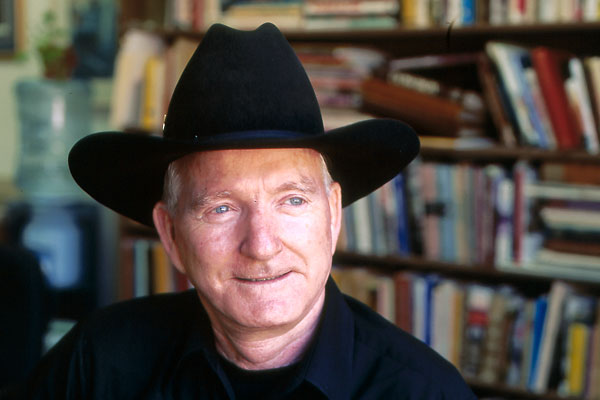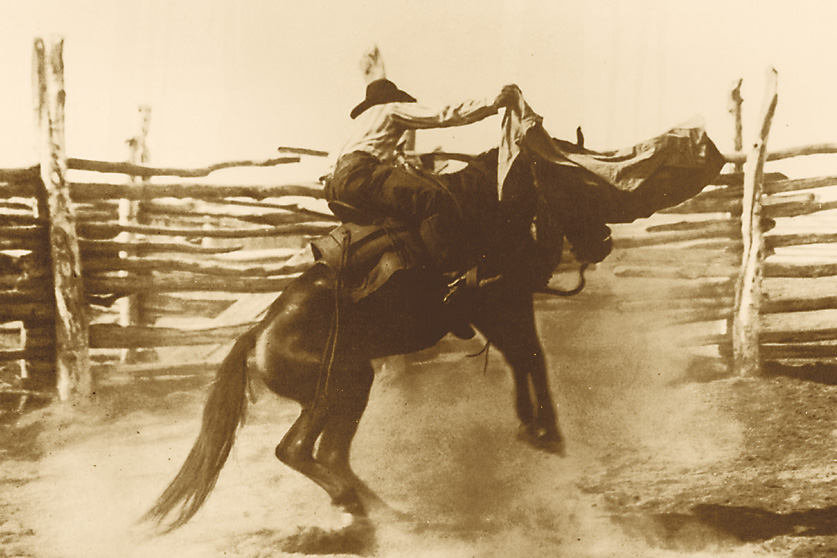When we think of Confederate revolvers we generally envision six guns like Leech & Rigdon, Spiller & Burr or the revolvers of the Dance Brothers. Of course, almost any handgun of the period of the War Between the States certainly could qualify, since so many rebel soldiers used whatever guns were available to them. With the exception of battle prizes, Colt’s revolvers would not normally be considered as Confederate. Colt was however among several Northern arms companies to sell to the Southern states, including their first 100 1860 models to their agent in Columbus, Georgia, on November 30, 1860, and at least one documented shipment of 1860s to the Confederate States War Department on April 15, 1861—a mere week after Fort Sumter was fired upon.
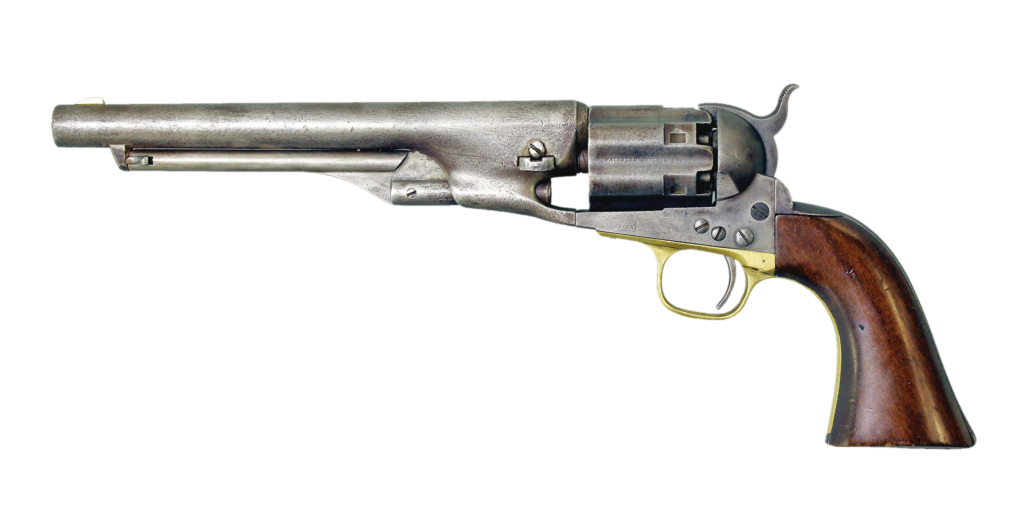
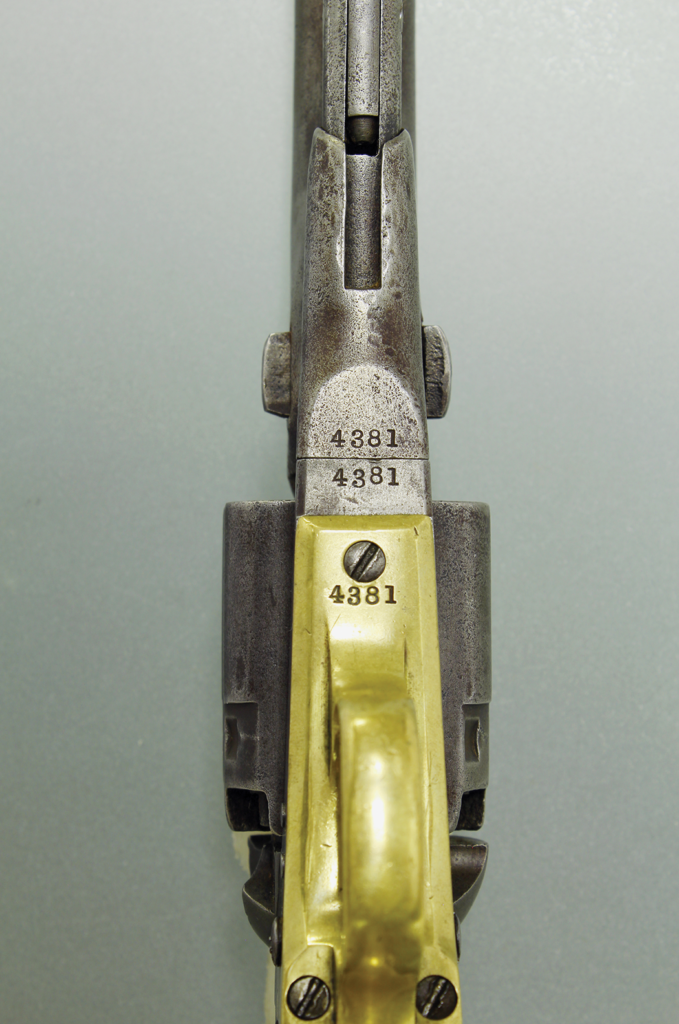
Known among collectors as the McCulloch 1860 Army Colts, these Hartford-produced .44 caliber percussion six-shooters definitely have a Confederate-linked history. When the 1860 Army, then dubbed the “New Army Model” was introduced in mid-1860, the first 4,000 guns were turned out with fully fluted (non-rebated) cylinders sans roll engraved cylinder scenes. This was done to reduce weight and they were referred to by Colt as “Cavalry” models. Other than their fluted cylinders, these ’60 models were just like the standard fully round, rebated cylinder guns with the roll-engraved naval battle scene, an eight-inch round barrel with the rack, and pinion “creeping” loading lever and the military-style four-screw frame with a cutout on the heel of the grip (for attaching a shoulder stock). Serial numbers of the McCulloch Colts range from 200 to 4700, with most above 2000. They would have had plain walnut stocks, been finished with a blued barrel, cylinder and trigger, a color case hardened frame, lever and hammer and a brass trigger guard and back strap.
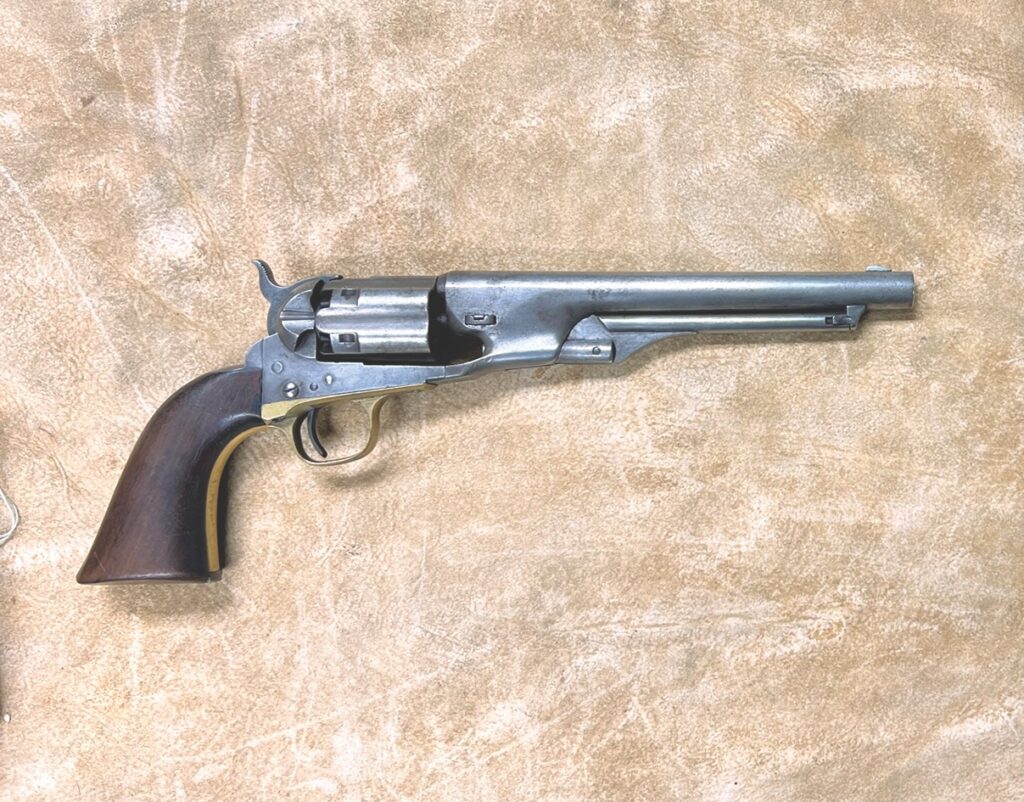
When the state of Texas passed their ordinance of secession on the first of February1861, it joined the Confederate States of America on March 2, 1861. With the withdrawal of federal troops from the state, Texas’s immediate concern was from Indian raids and Mexican incursions, more so than from Union troops. Former Texas Ranger Ben McCulloch wrote to Col. Sam Colt on February 24, 1861, asking that since federal forces were being pulled out of Texas, at least “a thousand or two of your army size pistols” would be needed by the Texas Rangers to guard against Indian attacks along her vast frontier, adding that he felt that Colt’s pistol was among the best arms for such mounted service. McCulloch had enjoyed a long and friendly relationship with Samuel Colt and had recently acted as a sales agent for Colt’s company. He had also long been a staunch advocate of Colt’s revolvers from his days as a Texas Ranger and throughout his other adventures in the West.
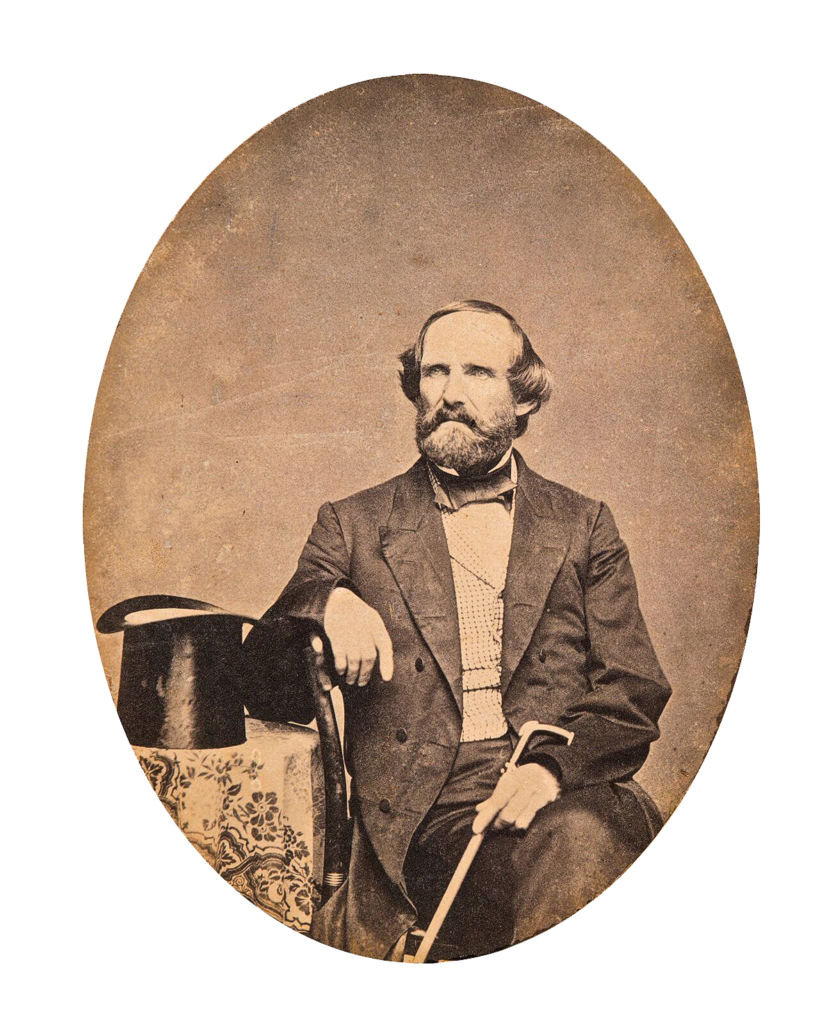
In a letter to Colt, McCulloch asked that as “a favor on the Rangers of my state” the company ship the guns immediately to Texas, via New York to New Orleans, where he’d have them forwarded to Austin. He proposed that the revolvers would be paid for by the State of Texas. Colt could not refuse his old friend, nor miss a hefty sale, and the first shipment of 250 Colts was shipped (in five cases) to Ben McCulloch, care of Colt’s agent Kittredge & Folsom of New Orleans, via New York, where they were loaded on the steamer Bienville, which sailed on the 1st of April, arriving in New Orleans on April 9th.
A second shipment of 750 revolvers left Colt on April 9th, traveling by land and reaching New Orleans on April 16th. From there the entire 1,000 Colts were transported again by land via Adams Express and once safely in Texas were forwarded to Austin for disbursement. Shortly thereafter on April 19, President Lincoln issued a “Proclamation of Blockade Against Southern Ports,” making shipment to and from the South extremely perilous, since the entire 3,500 miles of the Confederacy’s Atlantic and Gulf coastline was under constant patrol from Union naval squadrons. Thus, only 1,000 of these McCulloch-ordered Colts were ever shipped.
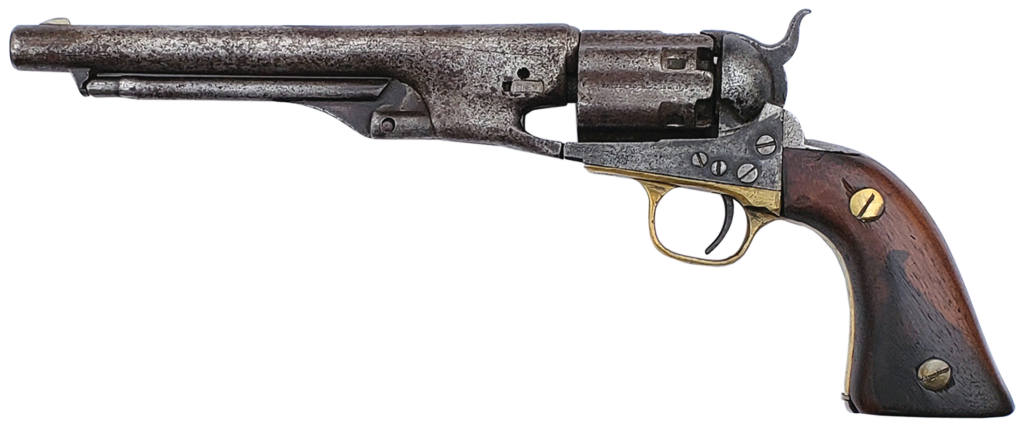
As of the most recent research, it’s unclear which Texas units received these Colts, but it is thought that possibly McCulloch’s brother Henry’s 1st Regiment Texas Cavalry (also known as the 1st Regiment Mounted Rifles) and possibly Col. John S. “Rip” Ford’s 2nd Texas Mounted Rifles may have wound up with a number of them. Coincidentally, by May 1861, as these units were being formed Confederate President Jefferson Davis appointed Ben McCulloch a brigadier general, in command of a district in the Confederacy’s trans-Mississippi area, taking him away from the region. By this time, with Texas desperately needing these weapons, they may well have already been issued to the Rangers serving along the Lone Star State’s unguarded frontier.
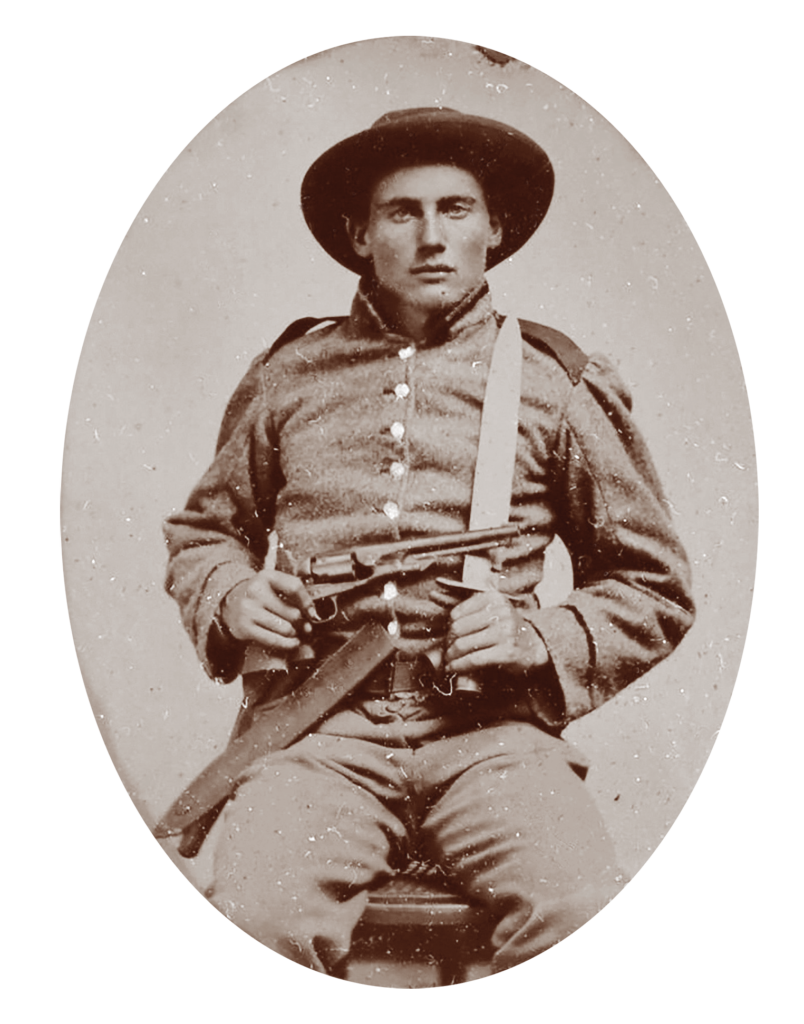
Although McCulloch had intended for these ’60 Colts to be paid for by the State of Texas, that legislature had not had enough time to allocate funds for the sale, so the guns were charged to Ben McCulloch’s personal account. With McCulloch’s death less than a year later at the Battle of Pea Ridge in Arkansas, the debt was never resolved, leaving the Colt firm with a loss of $25,900.
Regardless of whether they were used by the Rangers guarding the Texas frontier against Indian depredations, or by the Texas Confederate Cavalry in their defense of the Confederacy, they undoubtedly saw plenty of action. There are only about 49 McCulloch 1860 Colts known to still exist, and most of them show hard usage. Sold after Texas seceded from the Union, these coveted Yankee-manufactured Colts went on to earn lasting fame and battle honors as Rebel six guns. For further reading the excellent volume The Colt Model 1860 Army Revolver by Charles W. Pate is recommended and is available from orders@manatarmsbooks.com.

